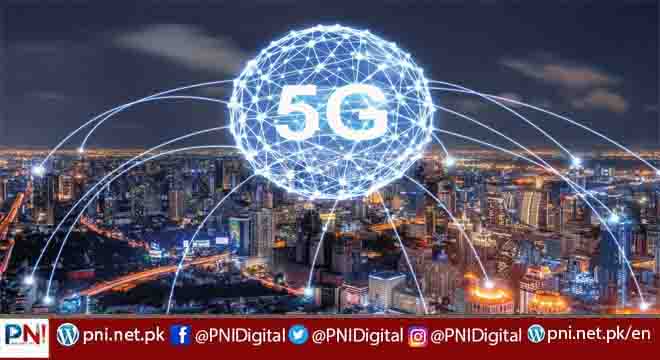ISLAMABAD, Apr 12 (APP): Ministry of Information Technology and Telecommunications is all set to launch Infrastructure Sharing Framework after the cabinet’s approval, informed Omar Malik, Member Telecom, MOITT.
He was speaking at a webinar on “Adopting 5G to Positively Impact Environment: A Roadmap for Pakistan” organized by Sustainable Development Policy Institute here today.
He further said that initiatives like spectrum and infrastructure sharing will play a crucial role in improving connectivity, reducing network disruptions, and lowering environmental impacts.
Referring to a study conducted in collaboration with World Bank which revealed optic fibre penetration as a key barrier, he informed that since 2020, the total deployment of fibre optic in Pakistan has increased from 124,000 km to 190,000 km.
Additionally, he said that economic instability and consumer affordability are other challenges hindering the launch of 5G in the country.
Senior Advisor Emeritus, SDPI Brigadier (Retired) Mohammad Yasin in his opening remarks highlighted political and economic instability, a higher tax on IT services, weak fibre optics infrastructure, expensive frequency spectrum, dearth of dollars and uneconomical smart phone prices as key challenges resulting in declining investor interest, deteriorating IT services, and delaying the launch of 5G in Pakistan.
Chairman of Central Asian Cellular Forum Khalid Khan said that advancement to 3G and 4G had transformational impacts on other sectors including transport, fintech etc.
He emphasized human resources being the top exportable commodity and urged to promote competitive engineering skills to capture the potential growth of the global IT sector.
He encouraged the government to focus on the larger picture of connectivity through supportive policy interventions rather than perceiving them as revenue-generating avenues.
VP Network, Jazz Abdul Rehman Usmani stressed that rather than hastening 5G’s launch, the best approach is to develop use cases and a sustainable business model to prevent consumers from reverting to 4G due to limited utility.
He stressed developing a conducive ecosystem through R&D centres, regulatory regimes, and cost-effective spectrum denominated in PKR.
Research Fellow, SDPI Dr Fareeha Armughan said that 5G would lead to the acceleration of modern financial services, cloud computing, and AI; with banks already keen to shift to fast, touchless, and easy-to-use financial services over conventional banking. There is no better tool than combining mobile and financial services for looping in the vulnerable communities in the economy and moving the needle full circle on poverty alleviation.
ICT Regulatory Expert Aslam Hayat, highlighted that the adoption of 5G offers potential advantages of energy efficiency, catalyze uptake of renewables, efficient resource management by promotion of AI, IoT and use of sensors etc., reduction in greenhouse emissions by the adoption of smart technologies particularly in the transport sector, and improvement in air quality.
However, he highlighted that these come with their disadvantages which include a sharp rise in electricity demand and consumption, an increase in e-waste load when consumers will switch to the latest 5 G-enabled devices and negative implications for the environment, biodiversity, habitats, and ecosystems due to infrastructure development.
Solutions Architect at Ericsson, Australia Fawad Sarwar highlighted that telecom and IT contribute 1.4% to global greenhouse gas emissions but by 2030, economic and industrial digitalization will have an out-sized influence of 50% of emissions.
He elucidated that the use of sensors, artificial intelligence and IoT-enabled systems can reduce emissions from the construction and transport sectors.
He stressed a three-pronged approach of sustainable network evolution, expanding and modernizing it and operating intelligently to break the energy curve and reduce environmental footprint.
Research Coordinator at the University of Vermont Maryam Shabbir Abbasi highlighted that developed countries offer emission reduction success stories achieved by the adoption of 5 G-enabled technologies in industries.
She stressed that in Pakistan 5G can enhance early warning systems, connectivity, intelligence, and information dissemination during climate disasters like the recent floods.
Executive Director, SDPI Dr Abid Qaiyum Suleri in his closing remarks stressed that penetration of 1 trillion interconnected devices is projected in the future and will increase lithium consumption by 4 times, and energy demand significantly.
He emphasized new self-energizing and energy harvesting techniques and capturing electromagnetic waves produced from these interconnected devices through micro-antennas to meet energy demand.
Follow the PNI Facebook page for the latest news and updates.









